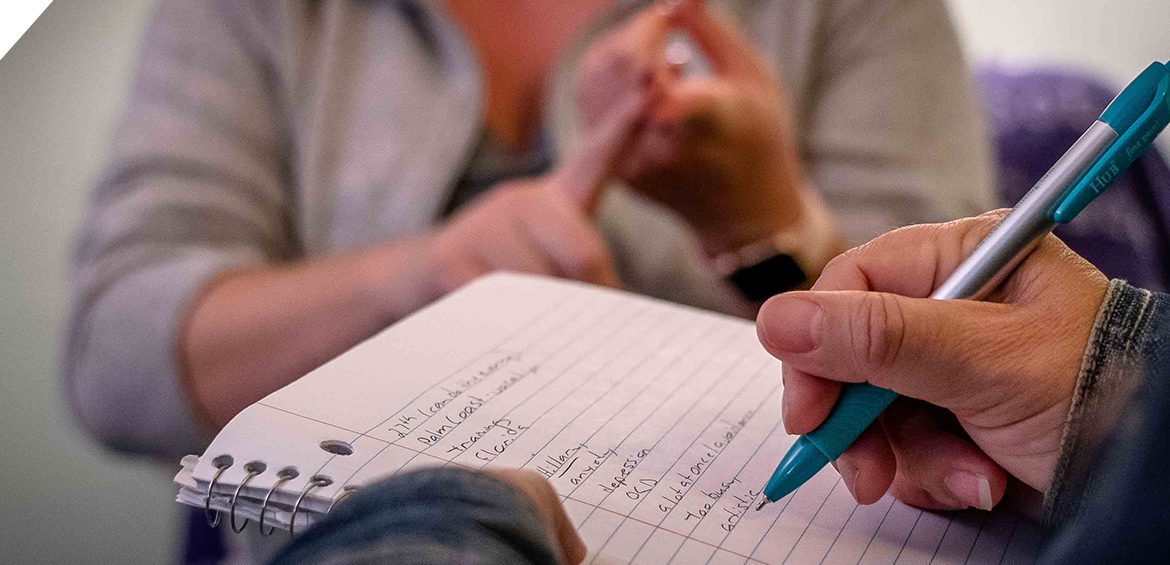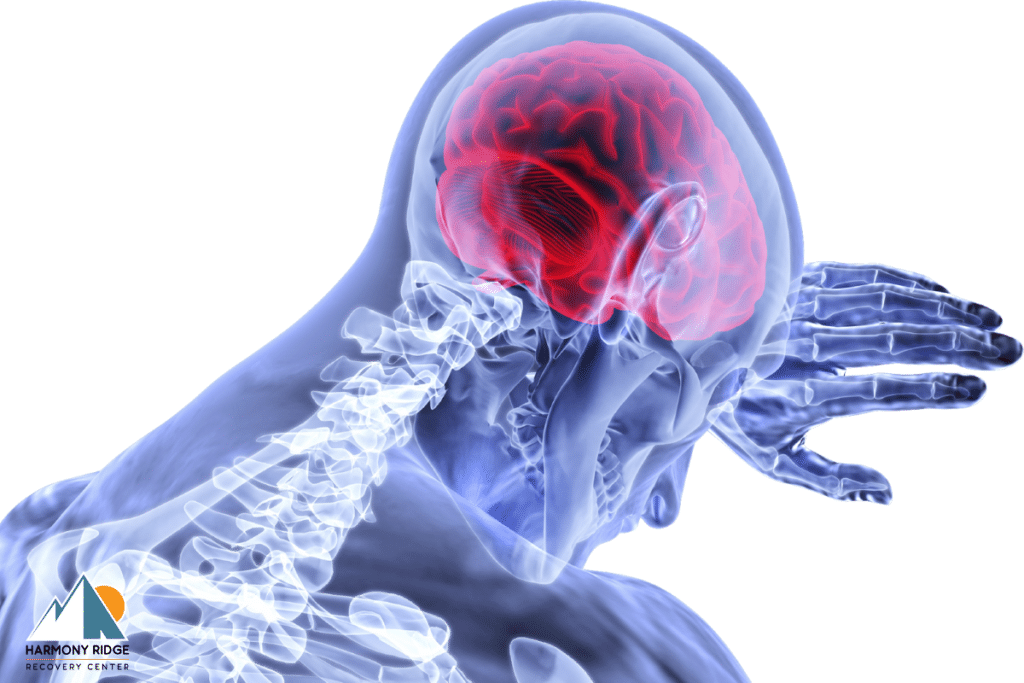Disease of Addiction
Those afflicted with the disease of addiction are fully aware of the detrimental outcomes associated with habitual substance abuse. Take a step toward change and health with Harmony Ridge Recovery Center.

Addiction is a disease caused by a combination of genetic, behavioral, and environmental factors. Addiction is the continued use of a mind-altering substance despite the consequences. It was classified as an official disease in 1987. With the increasing knowledge about addiction, treatment for this disease has also increased. Thankfully, addiction is curable and recovery is achievable!
Addiction: What Triggers This Disease?
A person does not wake up one day and say, “I am going to start using drugs and alcohol.” Something happens in your life. In some cases, the people you have in your life trigger a person to start using substances. Two primary triggers can lead to substance use:
- Pain triggers
- Social triggers
Pain Triggers
Pain does not just mean physical pain. Pain can also be caused by mental illness. A doctor prescribes pain medication after a car accident or during an illness. The pain medication triggers chemicals in your brain, and your body starts to become addicted to the feeling.
Pain caused by mental illness is not always physical. Mental pain can include depression and other emotional disturbances. This pain can be caused by genetics or the environment around you. Unfortunately, medications that treat mental illness are as addictive as medications used to treat physical pain.
Social Triggers
Peer pressure is one of the leading causes of first-time substance use. It’s presumed that everyone will have a drink on their 21st birthday or “take just one hit” at a party. The social pressure to fit in and to be the fun friend causes many people to start down the road to addiction.
6 Phases of the Disease of Addiction
Addiction does not happen after one drink or one time using a drug. There are 6 phases to the disease of addiction:
- Initial Use
- Abuse
- Tolerance
- Reliance
- Addiction
- Recovery
Phase 1 – Initial Use
The first time you use a substance, it triggers a reaction in your brain. This starts a path to psychological dependency. Many factors play a part in psychological dependence, including the following:
- Family: A family history of substance abuse increases the chances of addiction. A person who grew up in a family of addicts is more likely to start using drugs and alcohol. They may feel more accepted by their family if they also use these substances.
- Instability: An unstable life may also cause a person to use alcohol or drugs.
- Loneliness/Isolation: A lonely person has a high risk of turning to drugs and alcohol.
- Peer pressure: Friends can pressure a person into trying a substance for the first time.
- Mental Illness: Mental health issues such as depression can lead a person to using for the first time.
Phase 2 – Substance Abuse
Substance abuse is the act of using a substance in a harmful way. This can include drinking alcohol at home alone and not just in social situations. Taking medications more than prescribed is also a form of substance abuse. It may start with one drink or one pill after a long day, but one time quickly turns to three times, and that leads to abuse.
Phase 3 – Substance Tolerance
Tolerance builds after repeated use. Using drugs and alcohol tend to elicit certain feelings and responses within your body, such as euphoria or calmness. Your mind and body accept these feelings as normal. To achieve the same responses, a person must take higher doses.
Phase 4 – Substance Reliance
Reliance is when you need the drug to get through the day; this does not mean you are addicted. Some people require medications for their bodies to function correctly. But if your body becomes reliant on illicit drugs or alcohol or you take prescriptions more than directed, it can lead to addiction.
Phase 5 – Addiction
Addiction is a mental health disorder with very distinct features. Some of the characteristics include:
- Feeling like you can’t stop taking the substance
- Inability to stop taking the substance once you start
- The substance is more important than anything else
- Continuing to use the substance despite the health effects
- A strong desire for the substance
- Fear of not having the substance
- Inability to handle daily responsibilities
- Putting yourself in risky situations
- Refusal to stop taking the substance
Treatment for addiction is dependent on the substance that you are addicted to, the length of addiction, and the underlying issues that lead to addiction. Some addictions require a medical detox to minimize the withdrawal effects. Addiction to alcohol, for example, should be medically detoxed to prevent the depletion of essential nutrients in the body.
Phase 6 – Addiction Recovery
Recovery is a lifelong process. It’s important to continue working to overcome addiction, choosing never to give up. Research treatment centers and ask questions. Each facility is different, but there is certainly a rehab center that can help you break the cycle of addiction.
The Psychological Dependency of Addiction
The psychological dependency on a substance affects a person’s mental and behavioral state. Psychological dependency can manifest physically and can be confused as physical dependency. Some of the behaviors associated with psychological dependency include:
- Anxiety
- Irritability
- Insomnia
- Depression
- Loss of memory
- Poor judgment
- Changes in appetite
- Lack of concentration
- Fear of failure to overcome addiction
- An increased desire for the substance
How Gender Affects the Disease of Addiction
Addiction affects men and women differently. These effects are commonly seen in:
- how prone each gender is to addiction
- how they are impacted by the addiction
- the treatment of the disease
The physical differences between men and women play a part in addiction. According to the Psychiatric Clinics of North America, women have less water in their bodies than men. That results in women becoming more intoxicated than men after drinking alcohol. Women have less of an enzyme that breaks down alcohol, so alcohol stays in a women’s system longer.
Hormones are a factor in how addiction works in a person. Cocaine, for example, combined with estrogen, increases the feeling of euphoria. Because of this, women tend to run a higher risk of addiction.
Treating the disease of addiction is different in men and women. A few of the differences include:
Seeking Treatment
Many men only seek treatment when given an ultimatum. This also leads to men staying and completing treatment. Women are more likely to realize and accept that they need treatment. Unfortunately, women are less likely to complete treatment. The risk of relapse is increased when a person leaves treatment early.
Mental Health
Treating the mental health aspect of addiction differs between men and women. Treatments should be tailored for each gender. Women are 70 times more likely to suffer mental illness than men. Substance abuse often co-occurs with mental health disorders.
Social Influences
Many men consume drugs and alcohol because society has accepted that it is typical for men. Many women use drugs and alcohol for bonding but are more likely to quit using drugs and alcohol when they start wanting children, while many men tend to continue living dangerously.
Who is at Risk for Developing Addiction?
Anyone can suffer from the disease of addiction. Though certain factors influence the risk of addiction:
Biology. Genetics can increase your chance of addiction. If you come from a family of substance abusers, your chances of addiction increases by 50%. Mental health issues, also genetic, influences your chances of a co-occurring disorder.
Environment. A person’s environment, especially during the teen years, dramatically influences the chances of addiction. Environmental risks to addiction include:
- substance abuse in the home
- lack of parental guidance
- stress
- physical abuse
- mental abuse
- sexual abuse
Development. Addiction can happen at any age. Younger children exposed to drugs and alcohol are at an increased danger. Children are at a high risk of developing an addiction because their brain is still growing. Growing up around drug and alcohol abuse affects a child’s decision-making and self-control.
Why Choose Harmony Ridge to Treat the Disease of Addiction?
Addiction is a chronic disease. Just like asthma or heart disease, addiction can be treated but can not be cured. Just like any other disease, addiction requires help from people who specialize in treating addiction. Even after completing a treatment program, there is a risk of relapse. It is vital to enter a treatment center that is going to offer all the programs that will give you the tools to achieve lifetime sobriety.
Harmony Ridge Recovery Center is a nationally recognized drug and alcohol treatment center. We offer a wide range of programs to help each individual achieve a successful recovery. These programs include:
- Medical detox
- Individual therapy
- Group therapy
- Family therapy
- Cognitive Behavioral therapy
- Biofeedback therapy
- Adventure therapy
- Trauma Recovery
- Music and Art therapy
- Education workshops
- Wellness education
About Our Team at Harmony Ridge
The staff at a treatment center is just as important as the programs. Our caring team of medical professionals has helped countless individuals overcome their addictions. Harmony Ridge’s therapists customize treatment to help you regain control of your life and end addiction.
Through our various programs, our therapists use a variety of traditional and evidence-based practices.
The Treatment Process
At Harmony Ridge, we are with you every step of recovery and beyond. Our detox program is medically intensive. Detox does not have to be a horribly uncomfortable experience. Individuals receive 24-hour medical and nursing care, including medication management.
After completing detox, you transition into our inpatient program. In this program, you can develop the tools needed to stay sober. During therapy sessions, the therapist will help you understand what led to your addiction and repair mental and behavioral issues.
Depending on the severity of the addiction and the underlying issues, the next step after inpatient treatment is our partial hospitalization program (PHP). It goes into more depth about overcoming the obstacles and triggers of addiction. PHP allows a person to transition into the real world without sacrificing their level of care.
It is not uncommon for people to travel out of state to seek treatment. This gives them a chance to focus on themself and their addiction. At Harmony Ridge Recovery Center, our staff works hard to provide an individual with the best chance at sobriety. This does not stop once you complete treatment. We assist with participation in 12-step programs to help with your continued sobriety. Our Alumni program stays in regular contact with all of our graduates.
Contact Us Today!
What are you waiting for? Now is the time to seek treatment for your disease of addiction. The staff at Harmony Ridge is waiting to answer all your questions. Click here and start your journey to a new life.
References:
Jump To Section
Begin Your Journey to Healing Here
Ask me about recovery, I can help you!
Our recovery specialists are standing by 24/7 to help you or your loved one.
Or call us: 



